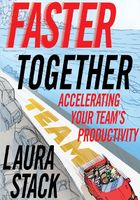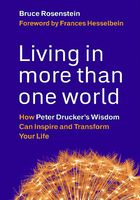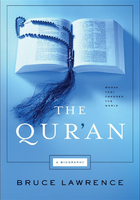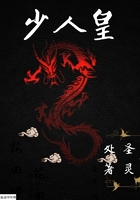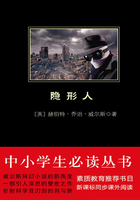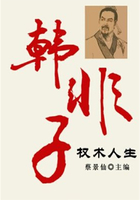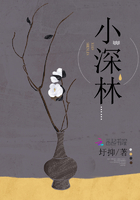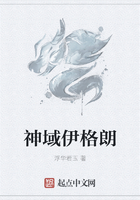Alaaddin's Shop
If I have any fault it is digression.
—Byron Pasha
Iam a picturesque writer. I've looked this word up in the dictionary, and I must confess that I still haven't worked out what it really means, but I still like the sound of it. I have a passion for the epic: knights on chargers; two armies standing on either side of a dark plain on a misty morning three hundred years ago, preparing for battle; luckless men downing rak? and exchanging unhappy love stories in meyhanes on a winter's night; lovers disappearing into the murky depths of the city in pursuit of a dread secret—these are the immortal tales I've always longed to tell, but all God gave me was this column, which calls for another kind of story altogether. And He gave me you, dear readers. Over the years, we've learned how to live together.
Had the garden of my memory not begun to wither, I would perhaps have no reason to complain, but every time I pick up my pen, I see you, my dear readers, and as I remember what you expect of me, as I survey my arid garden and struggle to reclaim the memories that have abandoned me, one by one, all I see are the traces they left in the dry soil. To be left with only the trace of a memory is to gaze at an armchair that's still molded to the form of a love who has left never to return: It is to grieve, dear reader, it is to weep.
So this is why I decided to have a chat with Alaaddin. When I told him I was planning to write about him in this column but wished first to interview him, he opened his black eyes wide and asked, "But Celal Bey, won't this get me into trouble?"
I assured him it wouldn't. I told him what an important part he played in all our lives. I explained how vividly we remembered all the many thousands of products he'd sold in his little store over the years—their colors, their fragrance. I recounted how, all over Ni?anta??, there were children lying in their sickbeds, waiting impatiently for their mothers to come home with a present from Alaaddin's: a toy (a lead soldier) or a book (The Redheaded Child ) or an adventure comic (episode seventeen, in which Kinova comes back to life to get even with the Redskins who scalped him). I told him about the thousands of children pining away in the schools nearby, longing for the bell to ring, dreaming that it rang ages ago and they are already in Alaaddin's, tearing the wrapping off a chocolate bar and pulling out a picture of a famous soccer player (Metin of Galatasaray) or a famous wrestler (Hamit Kaplan) or a film star ( Jerry Lewis). I spoke of the girls noticing the pale polish on their fingernails as they set off for the Arts and Crafts Night School, and stopping off at Alaaddin's to pick up a bottle of acetone; and I told him how, years later, when these same girls were wasting away in insipid marriages and lackluster kitchens, surrounded by children and grandchildren, they would, when they recalled the early loves that caused them such pain, see Alaaddin's shop shimmering before their eyes like a fairy tale from a distant land.
So he'd come to the house and we'd sat together for some time. I told Alaaddin about the green ballpoint pen I'd bought from his shop so many years earlier, and I recounted the plot of a badly translated detective novel. I went on to tell him a second story, in which the heroine, whom I loved dearly and for whom I had bought the book as a present, was condemned to do nothing in life but read these detective novels. I told him too about the two men (one a patriotic colonel who was planning a military coup, and the other a journalist) who had held their historic first meeting in his humble shop, there to lay the foundations of a conspiracy that would change not just the course of our own history but the history of the entire East. It was evening when this momentous event took place; behind his counter, piled to the ceiling with boxes and books, Alaaddin had been its witness—utterly unsuspecting, even as he wetted his finger the better to count the newspapers and magazines to be returned the next morning. I spoke of the naked women, local and foreign, beckoning from the covers of the magazines he displayed in the windows and wrapped around the great trunk of the chestnut tree outside his door, and I spoke of the men who ambled so slowly down the street past them, and of the dreams they would have that night, dreams in which these same naked beauties proved themselves insatiable, threw themselves about like slave girls, like the sultan's wives, like houris from The Thousand and One Nights! But while we were on that subject, I would also tell him that the tale that bore his name had not originally featured among the stories told during the famous thousand and one nights; it was a story Antoine Galland had slipped into the book when it was published in France two hundred and fifty years ago. What's more, it was not Sheherazade who had told Galland the story but a Christian woman named Hanna. I went on to explain that this woman was actually an Aleppo scholar whose full name was Yohanna Diyab, and that it was clear from the story's descriptions of coffee that the story itself was Turkish and most probably set in Istanbul. I went on to admit, however, that it was as difficult to trace the origins of a story as it was to trace the origins of life. Because the truth of the matter was that I'd forgotten everything, everything, everything. I told him the truth, that I was old, miserable, irascible, alone, and I wanted to die. Because the traffic noise from Ni?anta?? Square had merged with the human wails pouring from the radio to form an unholy chorus that brought tears to my eyes. Because my problem was this: After a lifetime telling stories, I wanted to sit back and listen to Alaaddin tell me tales about the cologne bottles, revenue stamps, illustrated matchboxes, nylon stockings, postcards, artists' drawings, sexology annuals, hairpins, and prayer books that I had seen in his shop once upon a time, only to have my memories of them vanish without a trace.
As it is with all real people who find themselves ensnared in other people's imagined tales, there was something surreal about Alaaddin, something that tugged at the boundaries of the known world and defied everyday logic. He told me he was flattered that the press was taking such an interest in him. For thirty years now, he'd been putting in fourteen-hour days in his corner shop, and on Sundays, between half past two and half past four, when everyone else in the world was listening to the football match on the radio, he was asleep at home. He told me his real name was not Alaaddin, but his customers didn't know this. He told me the only paper he read himself was Hürriyet. He told me he could not permit political meetings in his shop, because the Te?vikiye police station was just across the street and he wasn't interested in politics. It was also wrong to say he wetted his finger when he was counting magazines, and wrong, too, to say his shop was something out of a myth or a fairy tale. He had no patience for people who made mistakes like this. Like the elderly paupers who saw toy watches in the window and mistook them for real watches and were so amazed at his low prices that they came inside looking for more astounding bargains. The ones who got angry at Alaaddin when the bet they'd placed on the Paper Horse Race came to nothing or they'd failed, yet again, to win the National Lottery—accusing him of fixing the game when they had chosen their own numbers. The woman who came in to say that her stocking had a run, the mother who came in to complain that her child had broken out in a full body rash after eating domestic chocolate, the reader who didn't like the political views expressed in the newspaper he'd just bought—they all blamed Alaaddin, even though he didn't manufacture any of these things, he just sold them. If a customer bought brown shoe polish only to open the box and find it was black shoe polish, Alaaddin wasn't the one responsible. Alaaddin wasn't responsible if a domestically manufactured battery shook itself empty before the honey-voiced Emel Sayin had finished her first song, oozing black pitch and causing the transistor radio irreparable damage. Alaaddin wasn't responsible if a compass that was supposed to point north wherever you happened to be standing, always pointed instead to the Te?vikiye police station. And neither was he responsible for the love letter that a romantic factory girl had slipped into a pack of Bafras, even though the painter's apprentice who opened the pack came running back into the shop in a cloud with bells on his toes, to kiss Alaaddin's hand and ask him to be best man and inquire after the girl's name and address.
The shop was situated in what once had been the finest location in the city, but his customers never failed to surprise him. He was perplexed by gentlemen who still didn't know there was a custom known as standing in line, and sometimes he had to shout at the ones who refused to wait as they'd been taught. He used to sell bus tickets, but he lost patience with the handful of people who'd race into the shop the moment a bus came around the corner, yelling like Mongolians on the rampage, crying, "A ticket, please; a ticket, please; oh, for God's sake give me a ticket quick!" They'd create havoc and make a mess of the shop, and that was why he no longer sold bus tickets. He'd seen everything in his time—couples who'd been married for forty years arguing about lottery tickets, heavily made-up women who had to smell thirty different makes of soap before they bought a single bar, retired colonels who had to try out every whistle in the box before they found the one they wanted—but by now he was used to them; they didn't bother him anymore. The housewife who grumbled because he did not stock a back issue of a photo novel whose last issue came out eleven years ago, the fat gentleman who licked his stamps before buying them so he could find out how the glue tasted, the butcher's wife who'd come in only yesterday to return a crepe-paper carnation, complaining that it had no scent—none of these people bothered him anymore.
He'd given this shop everything he had, built it up from nothing. For years on end, he'd bound those old Texas and Tom Mix comics with his own two hands; every morning, while the city slept, he'd opened his shop, swept it out, tacked his magazines and newspapers to the door and the chestnut tree next to it, and arranged his latest novelties in the window. He'd combed the city for toy ballerinas that twirled when you brought a magnetic mirror near them, and tricolored shoelaces, and small plaster statues of Atatürk that had blue lightbulbs in their eye sockets, and pencil sharpeners shaped like Dutch windmills; signs saying FOR RENT and signs saying IN THE NAME OF GOD, THE COMPASSIONATE AND MERCIFUL; pine-flavored chewing gum that came with pictures of birds numbering from one to a hundred, and pink backgammon dice that you couldn't find anywhere but the Covered Bazaar; Tarzan and Barbarossa decals and hoods bearing the colors of soccer teams—like the blue hood he himself had been wearing for ten years—and all variety of metalware, like the gadget that doubled as a bottle opener and a shoehorn. No matter how strange a customer's request—Do you sell ink that smells of rose water? Do you have any of those singing rings in stock?—he never told them there was no such thing; if they asked for something, he assumed the item must exist somewhere, so he'd say, "We'll have it for you tomorrow." Then he'd write it down in his notebook, and the next day he'd go out on his travels, combing the shops of the city until he tracked the mystery object down. There'd been times when he'd made unimaginable sums selling photo novels and cowboy comics and pictures of blank-faced local film stars, and there'd been those cold, dull days when the only coffee and cigarettes you could find were on the black market, and you couldn't buy anything without standing in line. If you stood in this shop and looked out at the people passing by, you'd never guess that they were inclined this way or that way, but once you knew them as customers, you came to see they really were a crowd, a crowd driven by desires he could not begin to fathom.
You'd see this crowd on the pavement, a crowd in which no two people seem the same, but each and every one of them will suddenly develop a yen for musical cigarette boxes, and then they'll all want Japanese fountain pens that are no longer than your little finger, and a month later these same people will have forgotten all about them and will be yearning instead for those new revolver-shaped cigarette lighters, and Alaaddin really had to struggle to keep them in stock. Then there'd be a new craze for transparent plastic cigarette holders—for six months they'd all watch that disgusting tar building up inside them with such fascination you'd think they were perverted scientists—but then they'd lose interest and come flooding back to Alaaddin's to buy huge multicolored prayer beads—leftists and rightists alike, atheists as well as the devout and godfearing—wherever you went in the city you could hear them clacking, and when this storm blew over, leaving Alaaddin with piles of prayer beads that were suddenly impossible to move, there'd be a new craze for dreams and they'd all be lining up to buy those little booklets that claimed to interpret them. An American movie would come to town and every youth in the city wanted dark glasses; something would come out in the papers and all the women wanted lip gloss or all the men wanted skullcaps that made them look like imams; but most of the time these fads that spread through the city like a plague seemed to rise up out of nowhere. How else to explain why thousands, tens of thousands of people would suddenly decide that their every radio, radiator, rear window, room, worktable, and counter had to be adorned by the same wooden sailboat? How was a man to understand why every mother and child, man and woman, old and young, suddenly craved the same picture of an innocent child with a single tear rolling down his very European face, or why this face was suddenly staring at you from every wall and door in the city? This country was … these people were … It was I who completed his sentence—the word he was looking for was strange, or incomprehensible, or even frightening—for it was I, not Alaaddin, who was the wordsmith. At this juncture, we both fell silent.
It was later, as he was talking about those little nodding celluloid ducks he used to sell, and those old chocolates that came in the shape of cherry liqueur bottles and also had a cherry in the middle, and the place you needed to go to find the right strips of wood for a kite, that I began to grasp the wordless language that bound Alaaddin and his customers together. The little girl who came in with her grandmother looking for a chiming hula hoop, the pimply youth who snatched a French magazine and rushed off to a corner to make love to the naked women nestling in its pages, but quickly, before anyone noticed—Alaaddin loved them dearly. He even loved the bespectacled bank clerk who bought that racy novel and stayed up all night reading about the impossible exploits of its film-star heroes, only to return the next morning saying, "I already had this." Not to mention the old man who bought a poster of a girl reading the Koran and asked him to wrap it up in a newspaper that didn't have any pictures. But the affection he felt for his customers was guarded nonetheless. The mother and daughter who took a fashion magazine, opened up its pattern page, spread it on the floor like a map, and set about cutting material, the children who came in to buy toy tanks and were at each other's throats before they even left the shop—yes, he did think he understood why they did what they did, but when people came in asking for pencil flashlights or key chains with skulls on them, he could not but wonder if an unknown power from another planet was trying to send him a message. That strange man who had come in on a winter's day asking for a "Summer Landscape" when, as everyone else knew, it was the "Winter Landscape" students needed for their homework—what mysterious force propelled him? The two lost souls who had come in one evening, just as he was closing up the shop, and picked up two of those huge baby dolls—the ones with ready-made dresses whose arms move up and down—and cradled them as carefully, as lovingly, as if they were experienced doctors holding real-life babies, utterly entranced by the way their little pink eyelids opened and shut: They'd had Alaaddin wrap one doll up with a bottle of rak?, before disappearing into the night. What a fright they'd given him. After a number of similar incidents, these dolls had begun to appear in Alaaddin's dreams; he saw them standing in their boxes and plastic buckets in the dead of night, their eyelids opening and shutting oh so slowly as their hair grew ever longer. And perhaps he had been hoping to ask me what this could possibly mean, but before he could do so, he fell into that helpless, melancholy silence that falls over our compatriots when they feel they have spoken too much or imposed their troubles on the world for too long. Again we fell silent, and this time we both knew it would be a long while before either of us broke it.
Much later, as a regretful Alaaddin took his leave, he said he would leave it to me to decide how I wrote about all this, as I was far better qualified to do so than he was. And perhaps the day will come, dear reader, when I find it in me to do justice to those baby dolls, in a column so sublime it unlocks our very dreams.


